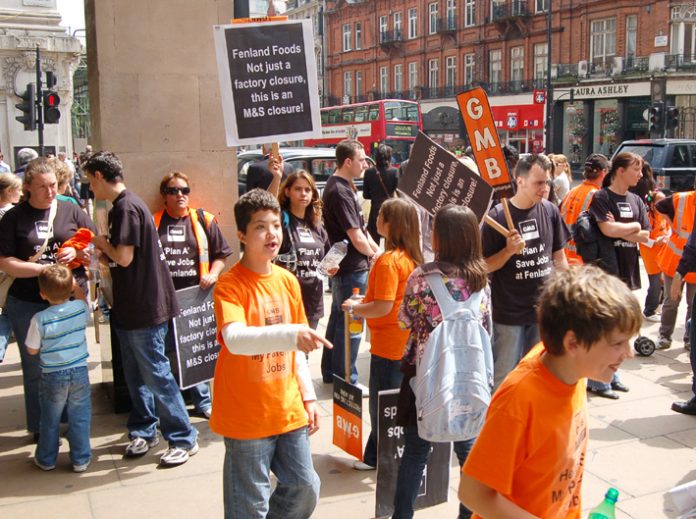
Official figures out yesterday showed that UK unemployment has hit an 11-year high, with the number of people out of work in the three months to September soaring by 140,000 to 1.82 million.
The unemployment rate rose to 5.8%, up from 5.4% in the previous quarter, according to the Office for National Statistics.
The number of people claiming the Jobseeker’s Allowance rose by 36,500 to 980,900 in October, the highest monthly increase since 1992.
Bank of England governor Mervyn King said the UK entered a recession in the middle of 2008 which will continue well into 2009.
He was introducing the Bank’s quarterly inflation report, which warned that the economic landscape has changed dramatically since August.
‘We are certainly prepared to cut the bank rate again if that becomes necessary,’ said King.
His comments saw the pound sterling fall further on international markets.
The pound dropped against both the US dollar and the euro.
Sterling declined to $1.5226 from $1.5426 at the previous close and fell to a record low versus the euro at 82.15 pence.
King told reporters: ‘Since the August Report, the economic landscape has changed.
‘As a result, the downward revision to the inflation outlook in today’s Report is the largest in any one quarter since the Monetary Policy Committee was set up.
‘It is very likely that the UK economy entered a recession in the second half of this year.’
He warned: ‘Growth in the fourth quarter is likely to be materially weaker than the Committee expected in August.
‘And, as we saw this morning, unemployment in the UK has risen at the fastest rate for seventeen years.’
He added that the world has seen ‘the most serious banking crisis since the outbreak of the First World War’ and ‘confidence has been badly affected’.
He based his predictions on lower inflation on the fall in oil prices.
The inflation report’s ‘central projection is for output to decline over the next year, so there will be four quarter growth falls further in the near term’.
He warned that ‘there are very few historical parallels to the present set of circumstances. So the uncertainty surrounding the projections in today’s Report is unusually large.’
The reaction of the trade union leaders was to call for government action.
Unite urged the government to make jobs and homes the priorities for the forthcoming pre-budget report.
Unite (Amicus section) joint general secretary Derek Simpson said: ‘Only urgent and widespread action by government to protect jobs and homes will help hard-pressed families through the worst of this global turmoil.
‘It is time once and for all to part company with the hard-faced economics and City gamblers that got us all into this mess in the first place.
‘Seize the opportunity now to build a country and an economy that puts people, not profiteers, first.’
Unite (TGWU section) joint general secretary Tony Woodley added: ‘People are looking to their government to help them through these frightening times, and will not forgive them if they fail to act quickly and appropriately.
‘The state shareholding in a range of banks should be used in society’s interest – to ensure that industry is supported, jobs are retained and people can stay in their homes.’
TUC leader Brendan Barber called for an increase of ‘at least £15’ a week in the Job Seeker’s Allowance (JSA) alongside tax cuts, as well as an increase in redundancy pay.
GMB General Secretary Paul Kenny said that employers should ‘follow the consultation arrangements, as required by law’, as these ‘often give trades unions an opportunity to explore real alternatives to redundancy. GMB was able to do this at JCB.’
This was a reference to the GMB-proposed £50 a week wage cut at the construction machinery giant.